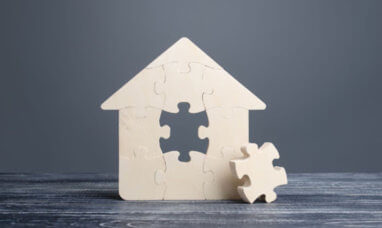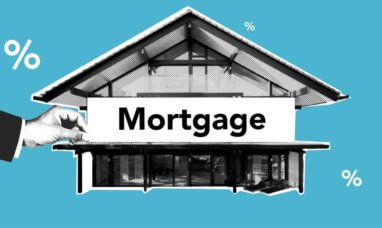Purchasing a second home is a dream for many. Whether it’s a vacation house, an investment property, or a retirement home, owning a second property can provide a lot of benefits. But before you jump into the real estate market, it’s important to know about second home mortgages and the rates associated with them. In this article, we will guide you through the process of understanding second home mortgage rates.
What is a Second Home Mortgage?
A second home mortgage is a loan used to purchase a second property, such as a vacation home or rental property. It can also be used to refinance an existing mortgage on a second property. Second home mortgages function similarly to primary mortgages in terms of interest, repayment terms, and eligibility. However, there are some important differences between the two.
Defining Second Home Mortgages
When you take out a second home mortgage, you’re borrowing money against the value of your second home. Unlike primary mortgages, second home mortgages are considered a higher risk for lenders. This means that second home mortgage rates can be higher than primary home mortgage rates. The interest rate on a second home mortgage is determined by the lender, depending on a variety of factors such as credit score, down payment, and the value of the property.
It’s important to note that not all lenders offer second home mortgages, and those that do may have different eligibility requirements. Some lenders may require that the second property be located a certain distance from the borrower’s primary residence, while others may require that the property be used exclusively as a second home and not rented out.
How Second Home Mortgages Differ from Primary Home Mortgages
One of the primary differences between a second home mortgage and a primary home mortgage is the down payment required. In general, lenders require a higher down payment for a second home mortgage compared to a primary home mortgage. The reason for this is that the lender wants to ensure that you have a significant amount of equity in the property before they lend you the money.
Another difference is the credit score requirement. Lenders typically require a higher credit score for a second home mortgage. The reason for this is that second home mortgages are considered riskier investments for lenders, so they want to make sure that you’re a good credit risk before they lend you the money.
It’s also worth noting that second home mortgages may have different tax implications compared to primary home mortgages. For example, if you rent out your second property for part of the year, you may be able to deduct certain expenses related to the rental income. However, you may also be subject to additional taxes on the rental income.
When considering a second home mortgage, it’s important to carefully weigh the costs and benefits. While owning a second property can be a great investment and provide a source of rental income, it also comes with additional expenses such as property taxes, maintenance costs, and insurance premiums. It’s important to have a solid financial plan in place and to consult with a financial advisor before making any major financial decisions.
Factors Affecting Second Home Mortgage Rates
Buying a second home can be an exciting investment. However, it’s important to understand the factors that influence the interest rate you’ll pay for your second home mortgage. In this article, we’ll explore some of the key factors that can impact your rate.
Credit Score and History
Your credit score is a critical factor that lenders use to evaluate your creditworthiness. A higher credit score can lead to a lower interest rate, while a lower credit score can result in a higher interest rate. In addition to your credit score, lenders will also consider your credit history, including any missed payments or defaults on previous loans. It’s essential to maintain a good credit score and history to secure the best possible rate for your second home mortgage.
Loan-to-Value Ratio
The loan-to-value (LTV) ratio is the amount of the loan compared to the value of the property. Lenders use this ratio to assess the risk of lending you money. A lower LTV ratio can lead to a lower interest rate, while a higher LTV ratio can result in a higher interest rate. It’s important to have a good understanding of the value of your property and the amount of the loan you’ll need to secure to calculate your LTV ratio accurately.
Debt-to-Income Ratio
Your debt-to-income (DTI) ratio is the ratio of your total monthly debt payments to your total monthly income. Lenders use this ratio to evaluate your ability to repay the loan. A lower DTI ratio can lead to a lower interest rate, while a higher DTI ratio can result in a higher interest rate. It’s essential to manage your debt carefully and keep your DTI ratio as low as possible to secure the best possible rate for your second home mortgage.
Property Location and Type
The location of your second home can also impact your interest rate. If the property is located in an area with high demand, you may be charged a higher interest rate. Additionally, the type of property can play a role in determining your rate. Vacation homes may have higher rates than investment properties or primary residences due to the higher risk involved. It’s important to research the location and type of property carefully to understand how it may impact your interest rate.
Overall, understanding the factors that impact your second home mortgage rate is essential to securing the best possible rate for your investment. By maintaining a good credit score and history, managing your debt carefully, and researching the location and type of property, you can increase your chances of securing a favorable interest rate for your second home mortgage.
Types of Second Home Mortgage Loans
When it comes to buying a second home, there are several types of mortgage loans available to borrowers. Understanding the differences between these types can help you make informed decisions about your loan and ensure that you are getting the best deal possible.
Fixed-Rate Mortgages
A fixed-rate mortgage is a popular option for many borrowers. With this type of loan, the interest rate remains the same for the entire duration of the loan. This means that your monthly payments will remain consistent, regardless of any market fluctuations. Fixed-rate mortgages provide a predictable payment schedule, making budgeting easier. They are a great option if you plan on staying in your second home for a long time.
One of the biggest advantages of a fixed-rate mortgage is that it protects you from rising interest rates. If interest rates go up, your rate will remain the same, and you won’t have to worry about your payments increasing. However, this also means that if interest rates go down, you won’t be able to take advantage of the lower rates without refinancing your loan.
Adjustable-Rate Mortgages
An adjustable-rate mortgage (ARM) is another option for financing a second home. With an ARM, the interest rate fluctuates based on market conditions. This means that your payments can go up or down over time. ARMs typically start with a lower interest rate, which can make them more affordable in the short term. However, they can become more expensive over time if interest rates rise.
One advantage of an ARM is that if interest rates go down, your payments will also go down. This can be a great option if you plan on selling your second home in the near future. However, if you plan on staying in your home for a long time, an ARM may not be the best option, as you could end up paying more in the long run.
Interest-Only Mortgages
With an interest-only mortgage, you only pay interest on the loan for a set period of time. This means that your monthly payments will be lower than they would be with a traditional mortgage. However, after the interest-only period ends, you will have to start paying principal as well. This can result in much higher monthly payments.
Interest-only mortgages can be a good option if you are buying a second home as an investment property. They can help keep your monthly expenses low, which can increase your cash flow. However, they can also be risky, as you will have to start paying principal at some point, which can result in much higher payments.
Balloon Mortgages
Balloon mortgages are loans with a fixed interest rate for a short period, usually five to seven years. After that period, the borrower must pay off the balance of the loan in a lump sum. Balloon mortgages can be risky, as they require a significant amount of money to be paid off at once. However, they can also be a good option if you plan on selling your second home before the balloon payment is due.
When it comes to choosing a second home mortgage loan, it’s important to consider your financial situation, your long-term goals, and your risk tolerance. Each type of loan has its own advantages and disadvantages, so it’s important to weigh your options carefully before making a decision.
How to Qualify for a Second Home Mortgage
Qualifying for a second home mortgage can be a bit more challenging than qualifying for a primary mortgage. However, it’s still possible to secure a loan with the right approach. Here are some things to keep in mind when seeking a second home mortgage.
Meeting Lender Requirements
Lenders have specific requirements for borrowers seeking a second home mortgage. These can include a higher credit score, a larger down payment, and proof of income. To qualify for a second home mortgage, you’ll need to understand what the lender is looking for and meet those requirements.
It’s important to note that the requirements for a second home mortgage may be different from those for a primary mortgage. For example, some lenders may require a higher credit score for a second home mortgage than they would for a primary mortgage. Additionally, lenders may require a larger down payment for a second home mortgage to reduce their risk.
Before applying for a second home mortgage, it’s a good idea to research the requirements of different lenders. This will help you understand what you need to do to qualify for a loan and increase your chances of approval.
Preparing Your Finances
Before you start seeking a second home mortgage, it’s essential to have your finances in order. This means paying off any outstanding debt, saving for a down payment, and improving your credit score if necessary.
Paying off debt can help improve your debt-to-income ratio, which is an important factor in determining your eligibility for a second home mortgage. A lower debt-to-income ratio shows lenders that you have a lower risk of defaulting on the loan.
Saving for a down payment is also crucial when seeking a second home mortgage. Lenders may require a larger down payment for a second home mortgage, so it’s essential to have enough money saved up to meet their requirements.
Finally, improving your credit score can also help increase your chances of approval for a second home mortgage. Lenders typically prefer borrowers with higher credit scores, as they are seen as less of a risk.
Shopping for the Best Mortgage Rates
Finally, it’s crucial to shop around for the best mortgage rates. Compare rates from multiple lenders to ensure that you’re getting the best possible deal.
Keep in mind that the interest rate on a second home mortgage may be higher than that of a primary mortgage. This is because lenders consider second homes to be a higher risk than primary homes.
However, by shopping around and comparing rates, you may be able to find a lender who offers a competitive rate on a second home mortgage. This can help you save money over the life of the loan.
Tips for Managing Second Home Mortgage Rates
Investing in a second home can be a great way to diversify your assets and provide a vacation getaway for you and your family. However, managing the associated mortgage rates can be a daunting task. Fortunately, there are several things you can do to manage your rates effectively. Here are a few tips:
Refinancing Options
One of the best ways to manage your second home mortgage rates is to consider refinancing. Refinancing your mortgage can help you secure lower rates, which can save you money over time. However, it’s important to note that refinancing isn’t always the best option for everyone. Before making any decisions, be sure to consider the costs associated with refinancing and weigh them against the potential savings.
Additionally, it’s important to keep an eye on interest rates and market trends. If interest rates have dropped significantly since you secured your mortgage, it may be worth considering refinancing. However, if rates have increased, it may be best to hold off and wait for a better opportunity.
Making Extra Payments
If you’re able to afford it, making extra payments on your second home mortgage can be a great way to manage your rates. By paying more than the minimum payment each month, you can reduce the amount of interest you’ll pay over the life of the loan. Additionally, making extra payments can help you pay off the loan faster, which can save you even more money in the long run.
Before making any extra payments, be sure to check with your lender to make sure there are no prepayment penalties. Some lenders charge fees for paying off a loan early, so it’s important to know what you’re getting into before making any decisions.
Renting Out Your Second Home
Renting out your second home can be a great way to offset the cost of your mortgage. By renting out your property, you can generate additional income that can be used to pay down your mortgage or cover other expenses associated with owning a second home.
However, before becoming a landlord, it’s important to research local laws and regulations. Depending on where your second home is located, there may be specific rules and regulations you need to follow. Additionally, it’s important to consider the costs associated with renting out your property, such as property management fees and maintenance costs.
Overall, managing second home mortgage rates can be a challenge, but with the right strategies in place, it’s possible to save money and make the most of your investment.
Tax Implications of Second Home Mortgages
Are you considering purchasing a second home? It’s essential to understand the tax implications of owning a second home. Here are some of the tax benefits and drawbacks to be aware of:
Mortgage Interest Deduction
One of the significant tax benefits of owning a second home is the mortgage interest deduction. If you take out a mortgage to finance your second home, you may be able to deduct the mortgage interest from your taxes. This deduction can save you money on your tax bill and make owning a second home more affordable.
It’s important to note that there are limits to the mortgage interest deduction. You can only deduct the interest on up to $750,000 of mortgage debt between your primary and secondary home. Additionally, the mortgage must be secured by the home, and you must use the home as collateral for the loan.
Property Tax Deduction
In addition to the mortgage interest deduction, you may be able to deduct the property taxes you pay on your second home. If you itemize your tax deductions, you can deduct the property taxes you pay on both your primary and secondary home. This can help reduce your tax bill and make owning a second home more affordable.
It’s important to note that there are limits to the property tax deduction. The deduction is capped at $10,000 per year for both your primary and secondary home. Additionally, the property taxes must be based on the assessed value of the property.
Capital Gains Tax
If you sell your second home for a profit, you may have to pay capital gains tax. This tax can be significant, so it’s essential to factor it into your budget when considering purchasing a second home.
The capital gains tax is calculated based on the difference between the sale price of the home and its basis. The basis is the original purchase price of the home, plus any improvements you’ve made to the property. If you’ve owned the home for more than one year, the capital gains tax is typically 15% to 20% of the profit. If you’ve owned the home for less than one year, the tax rate is typically your ordinary income tax rate.
It’s important to note that there are some exceptions to the capital gains tax. If you’ve lived in the home as your primary residence for at least two of the past five years, you may be able to exclude up to $250,000 of the profit from the sale ($500,000 if you’re married and file a joint tax return).
Overall, owning a second home can have significant tax implications. It’s essential to understand the tax benefits and drawbacks before making a purchase decision. Consult with a tax professional to determine how owning a second home will impact your tax situation.
Conclusion: Making the Most of Your Second Home Mortgage
Investing in a second home can be an excellent way to build wealth and enjoy a second property. However, it’s essential to understand second home mortgages and the rates associated with them. By understanding the factors that affect your interest rate, shopping around for the best rates, and being smart about managing your mortgage, you can make the most of your second home investment.






